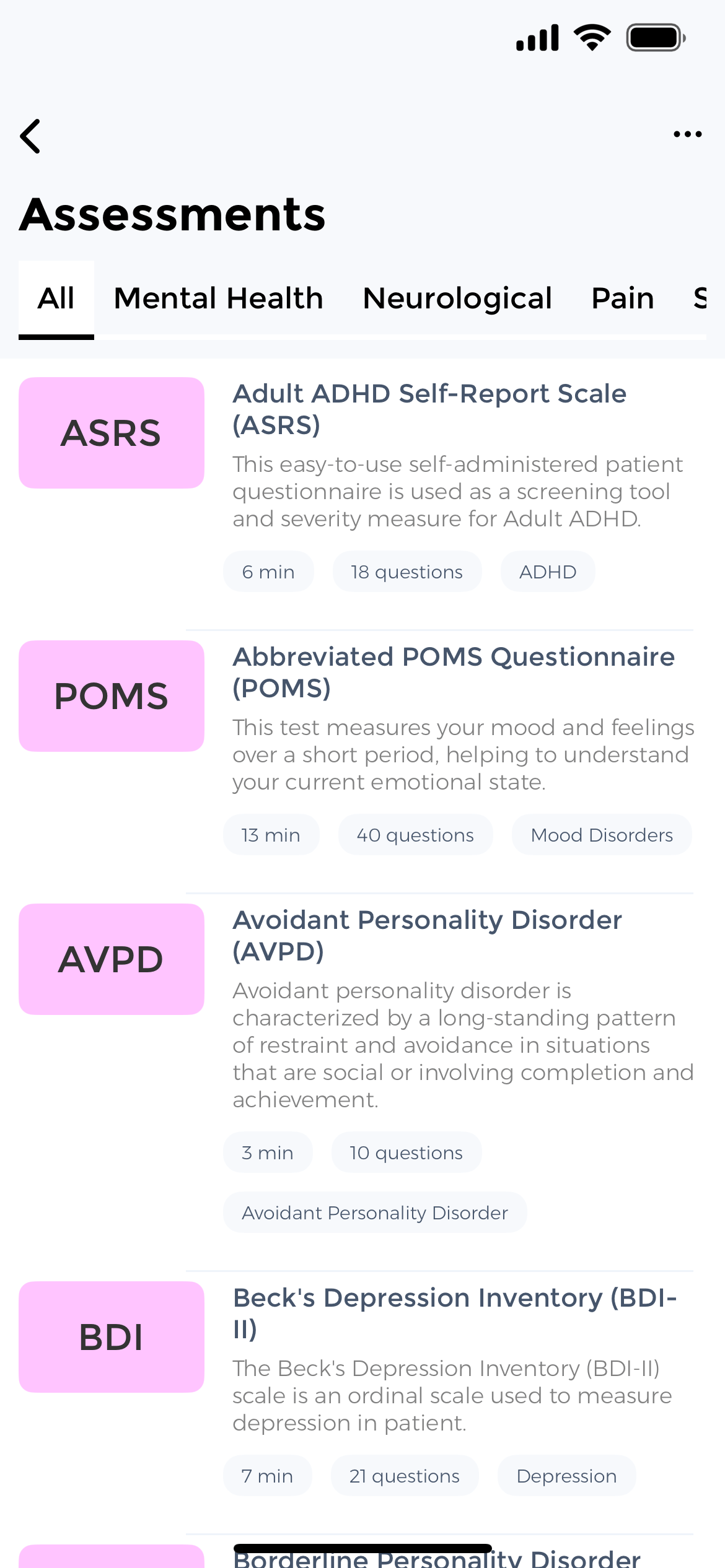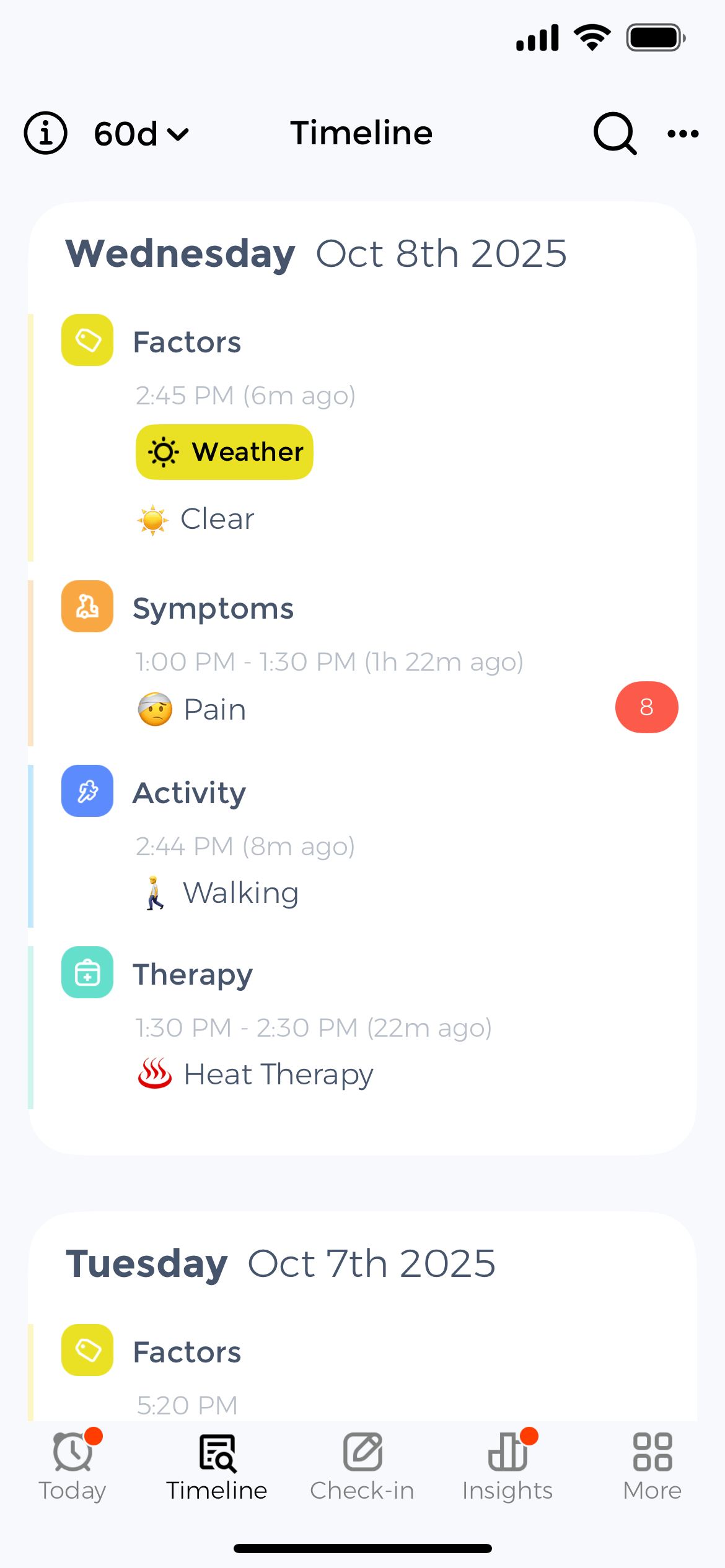Mental Health Tracker
Track mood, anxiety, depression symptoms, and mental health patterns with precision.
Your anxiety spikes every Sunday at 6 PM. Meanwhile, your ADHD symptoms get worse when you eat too much sugar. Similarly, your bipolar episodes always start with three nights of bad sleep. Sound familiar? Fortunately, the best mental health tracker app helps you log daily mood patterns, monitor symptom triggers, and identify what affects your mental wellbeing. Whether tracking anxiety, depression, bipolar disorder, ADHD, or PTSD, our free mental health tracking app ensures every pattern supports your recovery journey.
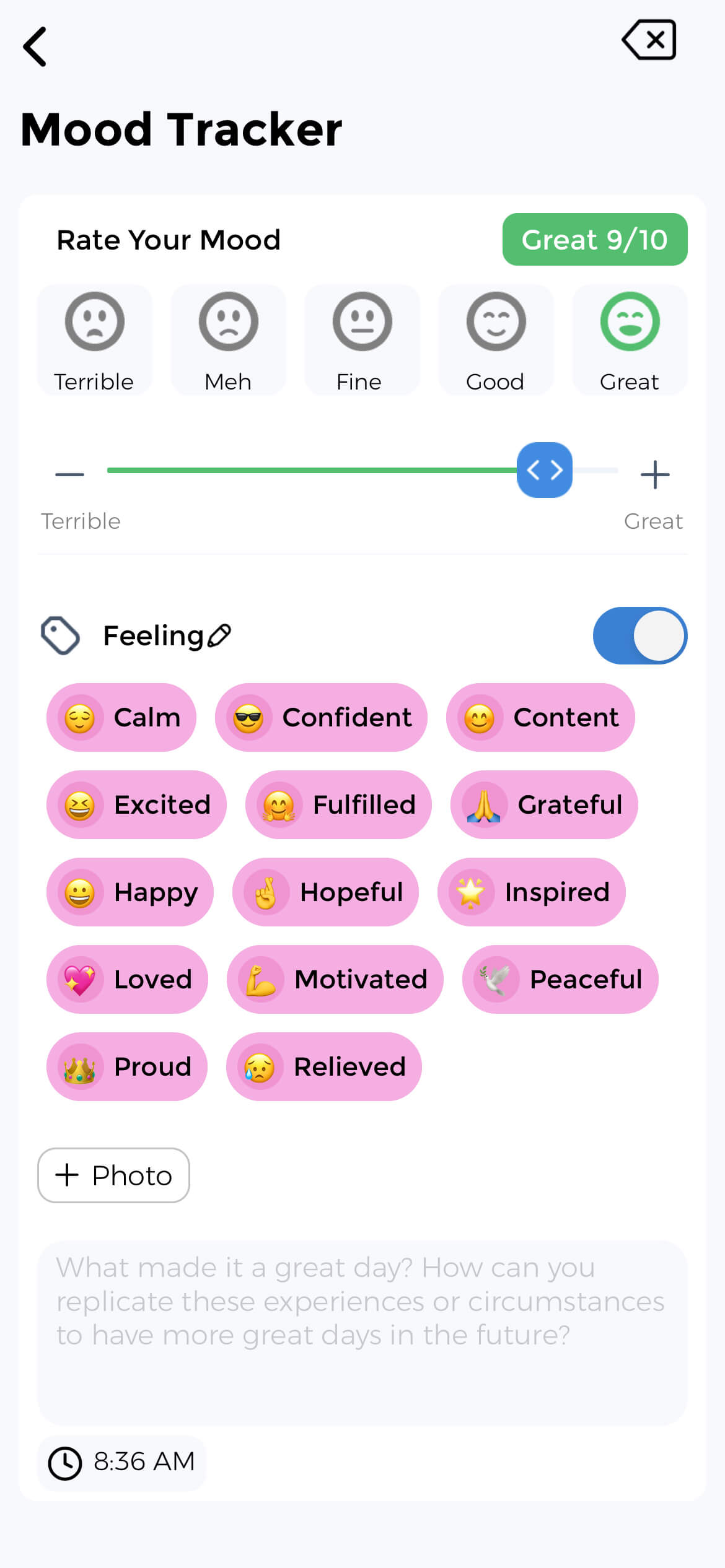
Track Mood & Symptoms Daily
Your brain is already sending you signals about what is coming next. However, most people just do not know how to read them. In fact, new research from January 2025 found that your smartwatch can predict tomorrow’s mood and spot depression symptoms days before you feel them.
Consequently, this anxiety tracker app helps you log mood swings daily, rate intensity from 1-10, track energy levels, and monitor sleep quality. Additionally, you can record panic attacks, depression episodes, and ADHD focus patterns. Furthermore, use the mood tracker to identify what triggers your symptoms and what helps you feel better.
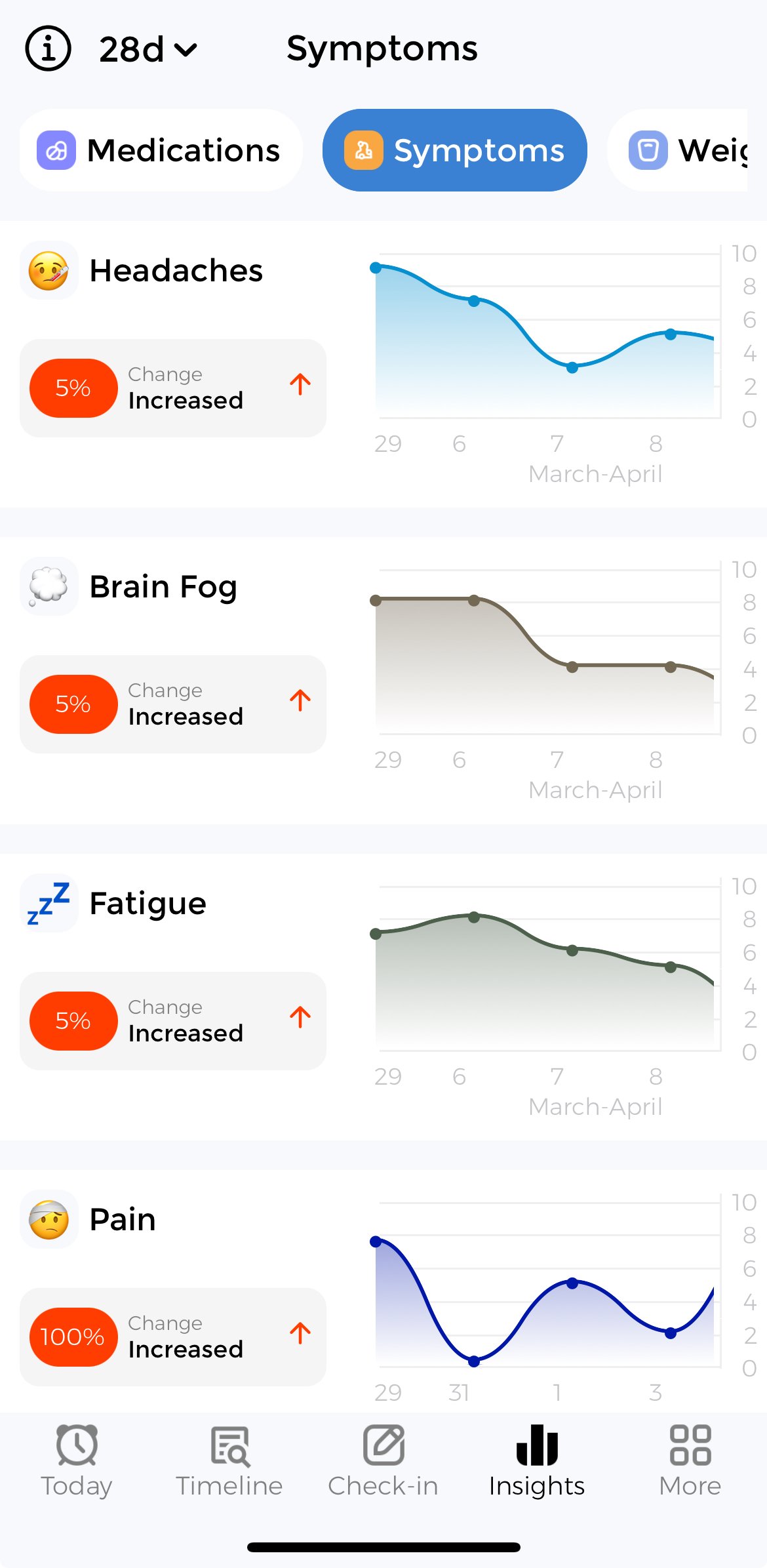
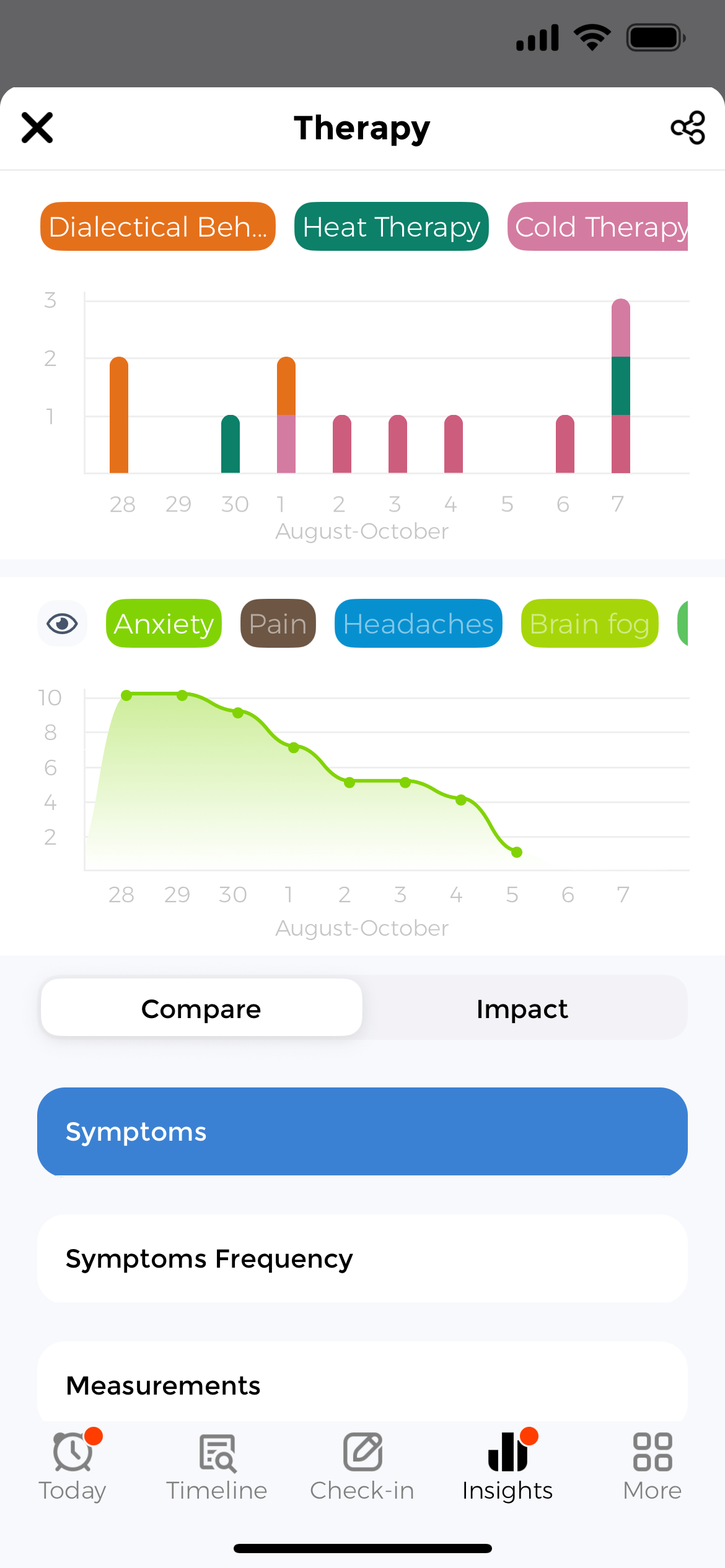
Find Your Triggers & Patterns
Here is the thing: your brain follows patterns. The question is whether you will learn to read them before the next episode hits, or keep getting surprised by your own mental health. Fortunately, this depression tracker app catches these shifts early.
Without symptom logs, you are essentially playing medical detective with faulty memory. In contrast, the mental health journal reveals clear patterns, such as anxiety always hitting Tuesday or bipolar episodes starting with three nights of bad sleep. Therefore, track stress with the mood tracker, medications, sleep patterns, and correlate with symptoms to identify triggers.
As a result, your records become visual timelines that reveal what drives flare-ups or recovery. Ultimately, this mental health tracking app turns daily symptom logs into real insights that improve your treatment.
What to Track Daily
Do not try to track everything. That is how you burn out in week two. Instead, start with what actually moves the needle. Specifically, track mood swings, energy levels, sleep quality, and anxiety intensity. Consequently, this mental health app helps you document these connections.
How Mental Health Tracking Works
1. Log Daily
Open the app, rate your mood, add symptom notes, and record triggers. Logging takes under 30 seconds per day.
2. Find Patterns
After two weeks, view analytics showing mood trends, common triggers, and correlations with sleep, food, or stress.
3. Share with Therapist
Export visual reports for therapy sessions. No more guesswork about symptom frequency or medication effectiveness.
Track Mental Health Conditions
Harvard researchers found that half of all humans will deal with a mental health condition by age 75. However, the ones who track their patterns catch problems early and actually do something about them. Therefore, tracking is essential for managing anxiety disorders, depression, bipolar disorder, ADHD, PTSD, and OCD.
Anxiety Disorder Tracking
Monitor panic attack frequency, anxiety intensity, physical symptoms, avoidance behaviors, and effectiveness of calming techniques. Identify what triggers your anxiety and what helps you manage it. Track GAD, social anxiety, and panic disorder symptoms.
Depression Episode Monitoring
Track appetite changes, social withdrawal, negative thought spirals, physical pain, and loss of interest. Monitor severity using validated PHQ-9 assessments. Identify early warning signs 2-5 days before episodes hit.
Bipolar Mood Episodes
Watch for sleep pattern changes (the number one predictor), rapid speech, spending urges, grandiose thoughts, and irritability. Track both manic and depressive phases to prevent full episodes from developing.
ADHD Symptom Patterns
Log focus spans, hyperactivity, impulsivity, stimulant medication timing, and hyperfocus episodes. Note what you ate and when you exercised. ADHD symptoms often worsen with sugar and improve with physical activity.
Behavioral Indicators of Mental Health Changes
Subtle behavioral changes often emerge 2-5 days before noticeable mental health episodes. The CareClinic app helps you track and identify these early warning indicators through systematic daily logging, enabling proactive intervention before symptoms intensify.
Sleep Timing Changes
Research indicates that consistent sleep timing shifts predict mood changes more reliably than total sleep duration. Circadian rhythm disruptions, such as delayed bedtime by 30 minutes over consecutive nights, frequently precede depressive or manic episodes.
The CareClinic app tracks sleep timing alongside mood logs, revealing correlations that help identify these critical warning signs before episodes fully develop.
Social Engagement Patterns
Decreased social interaction, including reduced communication frequency and duration, commonly precedes depressive episodes. Many individuals withdraw socially before consciously recognizing mood decline.
By tracking daily social activities in the CareClinic app, you can identify withdrawal patterns and implement support strategies during early intervention windows, potentially preventing prolonged episodes.
Free Mental Health Resources & Worksheets
Prefer pen and paper? Download free printable worksheets, assessments, and tools to track your mental health offline. Each resource complements digital tracking for a comprehensive approach.
Feelings Wheel PDF
Identify precise emotions using Dr. Robert Plutchik’s visual tool. Organize feelings into primary, secondary, and tertiary levels for accurate emotional awareness and communication.
Neurodivergent Test
Free screening tools for ADHD, autism, dyslexia, and other neurological differences. Educational assessments that help you explore cognitive patterns and seek professional evaluation.
Mental Health Check-In Worksheet
Structured daily reflections with mood ratings, emotion checklists, and trigger identification. Transform vague feelings into concrete data you can share with healthcare providers.
Depression Test (PHQ-9)
Validated screening instrument that evaluates depressive symptoms including mood changes, interest loss, and sleep disturbances. Scores guide you toward appropriate next steps.
Physical Symptoms That Predict Mental Symptoms
Your body knows what is coming before your mind catches up. Specifically, physical symptoms often show up 2-5 days before mental health episodes. Therefore, track these warning signs to intervene early before full episodes develop.
Headaches & Muscle Tension
Tension headaches and tight shoulders often appear before anxiety spikes. Your body holds stress physically before you feel it mentally.
Digestive Changes
The gut-brain connection is real. Nausea, appetite changes, or digestive issues frequently signal incoming depression or anxiety episodes.
Restlessness or Fatigue
Feeling wired but tired? Physical restlessness combined with mental exhaustion predicts manic or mixed episodes in bipolar disorder.
Stop Guessing, Start Tracking Your Mental Health
Ready to stop playing mental health roulette? Download the best mental health tracker app free today. Join 500,000 people using data to understand their anxiety, depression, bipolar disorder, and ADHD patterns. The app’s neurodivergent-friendly design and AI personalization make it perfect for tracking complex mental health conditions.
Frequently Asked Questions



